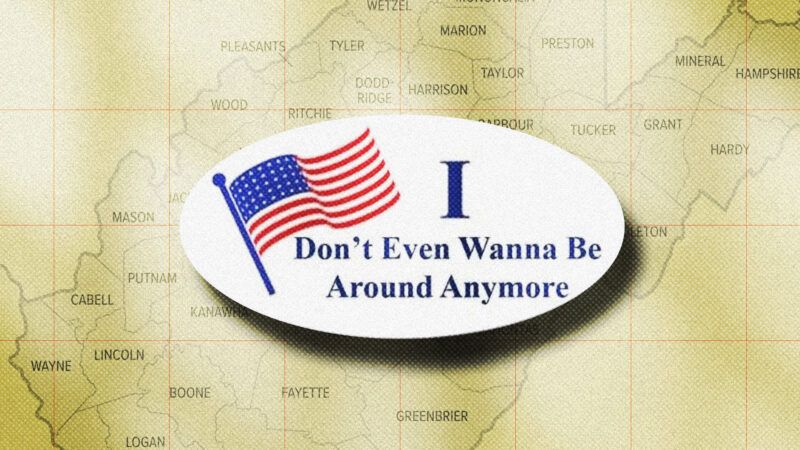West Virginia Voters Passed a Constitutional Amendment Prohibiting Assisted Suicide
But the amendment won't prevent the state from killing you.

West Virginians narrowly approved a ballot question to constitutionally prohibit people from seeking medical help in ending their own lives—while preserving the state's power to kill convicted criminals.
The race was not called until more than a week after Election Day, with 50.4 percent of the vote in favor of the constitutional amendment, which bans "the practice of medically assisted suicide, euthanasia, or mercy killing of a person."
The ban applies to both the individual seeking to die and any physician or healthcare providers who assist the effort. It does not prohibit palliative care or the medications that might be distributed to ease pain and suffering—for example, doses of morphine delivered during hospice care. The ballot initiative does, explicitly, preserve the state's power to use capital punishment.
In both cases, the amendment might be unnecessary. Assisted suicide is already illegal in West Virginia, and the death penalty was banned in the 1960s. Still, if you're going to elevate one of those bans into the state constitution, why explicitly exempt the other?
The main outcome of the election is to bind future West Virginia lawmakers' hands. With the newly approved constitutional amendment in place, state lawmakers will not be allowed to legalize physician-assisted suicide without first passing another constitutional amendment.
Physician-assisted suicide was already illegal in West Virginia, but the constitutional amendment put on the ballot there was a response to legalization efforts in other states. Oregon was the first state to legalize assisted suicide in 1997, and it is now legal in eight other states and Washington, D.C., via a combination of legislation and ballot initiatives. This was the first time voters had been asked whether to ban physician-assisted suicide, rather than being asked to legalize it.
The ballot question was by far the most competitive statewide race in deep-red West Virginia. President-elect Donald Trump carried the state by 42 points, and Jim Justice, the Republican candidate for Senate, won by 41 points in the race to replace retiring Sen. Joe Manchin (D–W.Va.). Republicans also won the state's gubernatorial race, both congressional races, and supermajorities in the state House and state Senate.
That suggests that the physician-assisted suicide question cut across partisan lines for at least some voters—even though the West Virginia Republican Party officially endorsed a "yes" vote on the issue.
Opponents of the ballot question said a constitutional prohibition on assisted suicide was unnecessary and an attack on the rights of West Virginians to die with dignity.
The West Virginia chapter of the American Civil Liberties Union (ACLU) highlighted the contradiction of a supposedly pro-life amendment including a special carve-out to protect the death penalty. "Constitutions exist to safeguard individual freedoms from government overreach," the group said in a statement about the ballot initiative. "This amendment does the exact opposite."
Unlike other hot-button culture war issues, the right to decide when to end one's life has not (yet) been consumed by partisan politics. In a different state, or even in a different election in West Virginia (given how close the results were), the outcome may be different.


Show Comments (50)